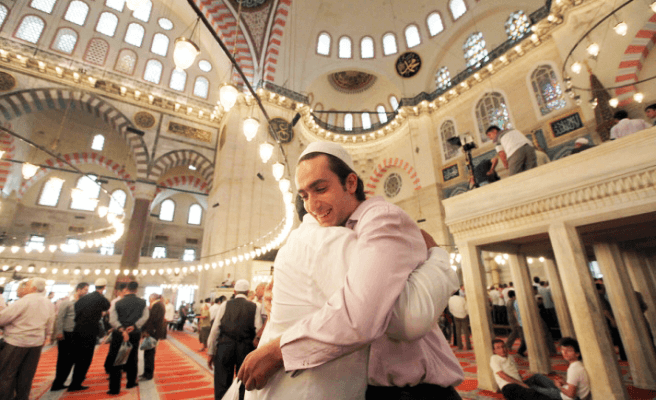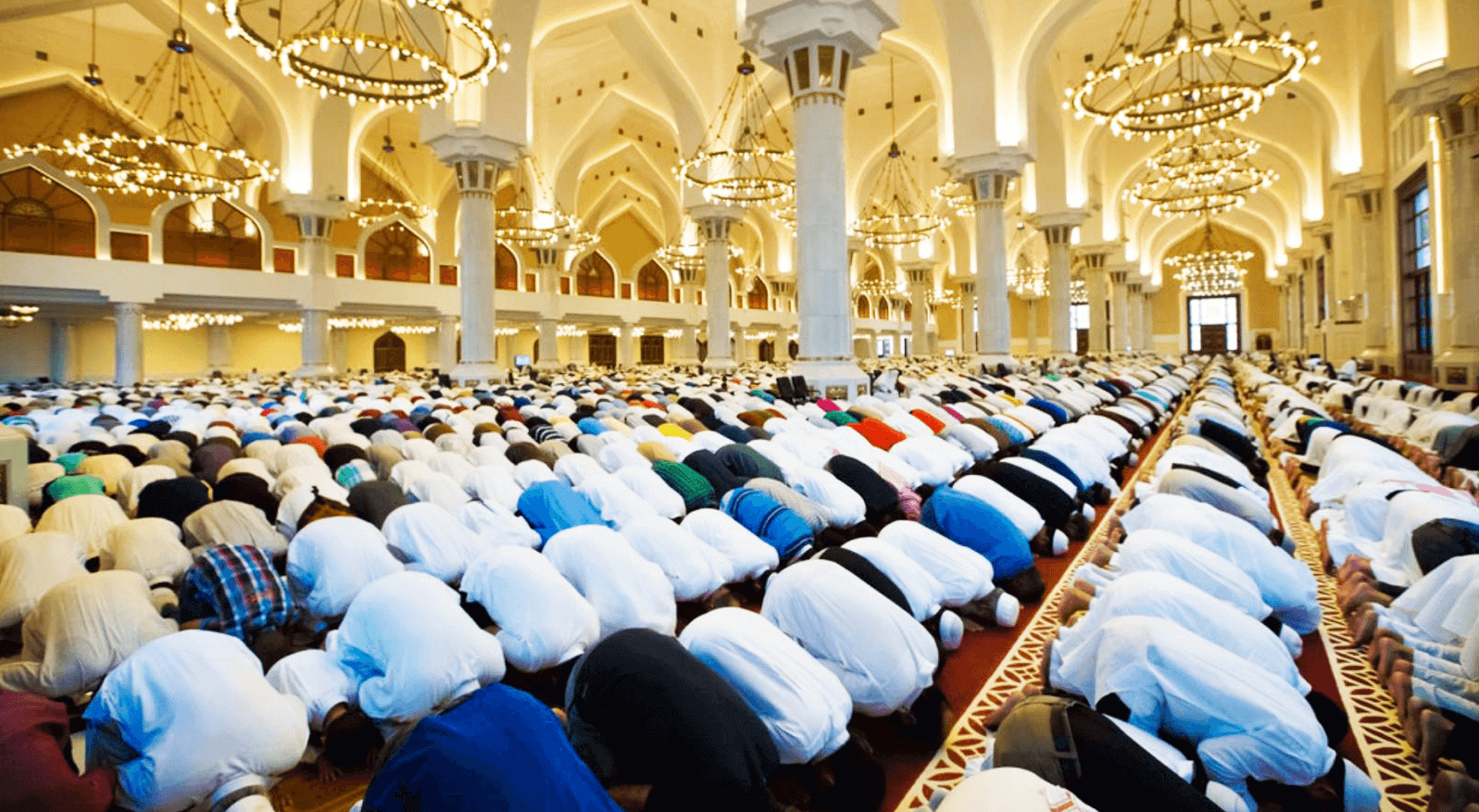Eid ul Fitr 2020
Eid ul Fitr 2020
WHEN IS EID UL FITR 2020?
This year, Eid ul Fitr 2020 is expected to be celebrated on Sunday, May 24, 2020. However, exact date is subject to sighting of moon of Shawwal, 1441, 10th month of Islamic Calendar.
WHAT IS EID AL FITR?

Both Eid ul Fitr and Eid Al-Adha have great significance in Islam as the same is evident from the
following Hadith:
Narrated that Anas bin Malik (R.A.), who said:
(An-Nasai:
1556)
Remember one thing that Fasting on Eid days i-e Eid ul-Fitr and
Eid al-Adha are forbidden as the same is evident from the following Hadith:
Narrated Abu Said Al-Khudri (R.A.) that Prophet (S.A.W.) said:

Since it is a religious festival, therefore, Muslims all over the world celebrate this event with much fervor and each country’s celebrations vary as there is an influence of their traditions. Muslims all over the world celebrate the festival of Eid al Fitr by starting the day with the Eid prayer. After offering prayer, Muslim greet each other with the customary Eid greetings by saying Eid Mubarak. Everyone gets new clothes made for the special occasion because every single person wants to look his/her best. The day is spent with friends and family as they get together indulging in eating and handing out gifts.
Eid-ul-Fitr is a period of happiness and enjoyment; and this is
also evident from the following Hadith:
It was narrated by Aisha (R.A.) who reported that Prophet (S.A.W.) said to Abu Bakr (R.A.) (On the day of Eid when Abu Bakr (R.A.) saw two girls were singing the stories about the Day of Buath in Madinah):
“….. O Abu Bakr! Every people have their Eid
and this is our Eid.”
In another narration, it is said that Allah’s Messenger (S.A.W.) said to Abu Bakr (R.A.):
“Let them be O Abu Bakr, for these are day of Eid.”
EID PRAYER

The scholars differed concerning the ruling on Eid prayers. However, all Muslim should attend prayers of both Eids as most scholars, on the basis of strong evidences, is of opinion that it is Wajib (obligation). One of the purpose behind Eid Prayer is to provide opportunities to a greater number of Muslims to attend larger congregations in an atmosphere of religious piety. Apart from prayer, the Eid sermon (after Eid Prayer) has also been made an integral part of this gathering and the prayer.
- It is important and
compulsive for a Muslim to pay ‘Zakat-ul-Fitr’ before offering of Eid Prayer. (Sahih Bukhari: 1511)
- The time for Eid Prayer
begins from the time the sun is three meters above the horizon until the sun
reaches its meridian. However, it
is better to offer the prayer in the early hours after the sunrise. (Abu Dawud: 1135)
- Eid Prayer is
performed without any ‘Iqmah’ or ‘Athan’. [Sahih Muslim: 885 (b)]
- Eid prayer consists of
two Rak'at (Two Unit Prayer) during which Tabkeer (Allah-u-Akbar) is pronounce seven
times. (Abu Dawud: 1149)
- Rest of the Eid prayer
is same as other prayer offered daily.
- After completing the
prayer, it is Sunnah (some scholars say that it is Wajib) to listen the Sermon
(Khutbah) after Eid Prayer. So one should stay for Imam’s sermon to end after
completing the Eid Prayer.
After listening the sermon, Muslims congratulate each other with greetings such as ‘Eid Mubarak’, ‘Happy Eid, and عيد مبارك etc. However, the most common Eid Greeting Muslims like to wish their friends and fellow Muslims is ‘Eid Mubarak’.
Sunnah of Eid Prayer
1- Take a bath or perform ablution before
going for prayer.
2- Use the tooth-brush
(Miswaak).
3- You should wear your best clothes on this day.
4- Apply perfume.
5- Eat odd number of dates before leaving
for prayer of Eid Al-Fitr. (Sahih Bukhari: 953)
6- Make sure that you
have paid Zakat Al-Fitr before
offering Eid Prayer.
7- Say following ‘Takbeerat’ while going and returning from Eid Prayer:
اَللهُ أَكْبَرُ ، اَللهُ أَكْبَرُ، اَللهُ
أَكْبَرُ، لَا إِلَهَ إِلَّا اللهُ ، وَاللهُ أَكْبَرُ، اَللهُ أَكْبَرُ،
وَلِلَّهِ الْحَمْدُ
Allaahu akbar, Allaahu akbar, Allahu akbar laa
ilaaha ill-Allaah, wa Allaahu akbar, Allaah akbar, wa Lillaah il-hamd
(Allah is Most Great, Allaah is most Great,
Allah is most Great there is no god but Allaah, Allaah is Most great, Allaah is
most great, and to Allaah be praise)
8- Listening to Sermon (Khutbah) after
offering Eid Prayer. (An-Nasai: 1517)
9- Use different ways while going to mosque and returning after offering Eid Prayer. (Sahih Bukhari: 986)
ZAKAT AL-FTIR (Fitrana)

As narrated by Ibn Umar (R.A.) that:
“Allah's Messenger (S.A.W.) made it incumbent (Wajib)
on all the slave or free Muslims, male or female, to pay one Sa' of dates or
barley as Zakat-ul-Fitr.”
According to above mentioned Hadith, Zakat Al-Fitr or Sadaqat-ul-Fitr
(or fitrah/fitrana) is Wajib upon every Muslim including slave, freeman, male,
female, young, new-born and old. Compulsion of Zakat ul-Fitr on a Muslim is same
as the Nisab of normal Zakat (Nisab Is the exemption limit for the payment of
Zakat).
The amount of Sadaqa Al-Fitr to be given by each person is an
amount minimum or equivalent to one Sa' of grain / barley / date. Sa’ is an
ancient measure of volume and most common understanding is that one Sa' is
equivalent to approx. 2.25-2.5 KGs. However, Muslims scholars all around the
world usually announce the amount of Zakat Al-Fitr to be paid during Ramadan.
As in normal Zakat, Zakat Al-Fitr is distributed among poor and needy
Muslim. It is preferable to give Sadaqat-ul-Fitr firstly to needy relatives,
thereafter to needy neighbors and then to other needy Muslims.
Zakat Al-Fitr should be paid before the Eid Prayer.
So enjoy this festival as you can celebrate the entire day with your
friends and family members and eating but don’t forget your under-privileged fellow
Muslim brother and sisters who don’t have the means to celebrate this blessed
festival.
Also, remember us and all Muslim Ummah in your Duas.
Contact Us





